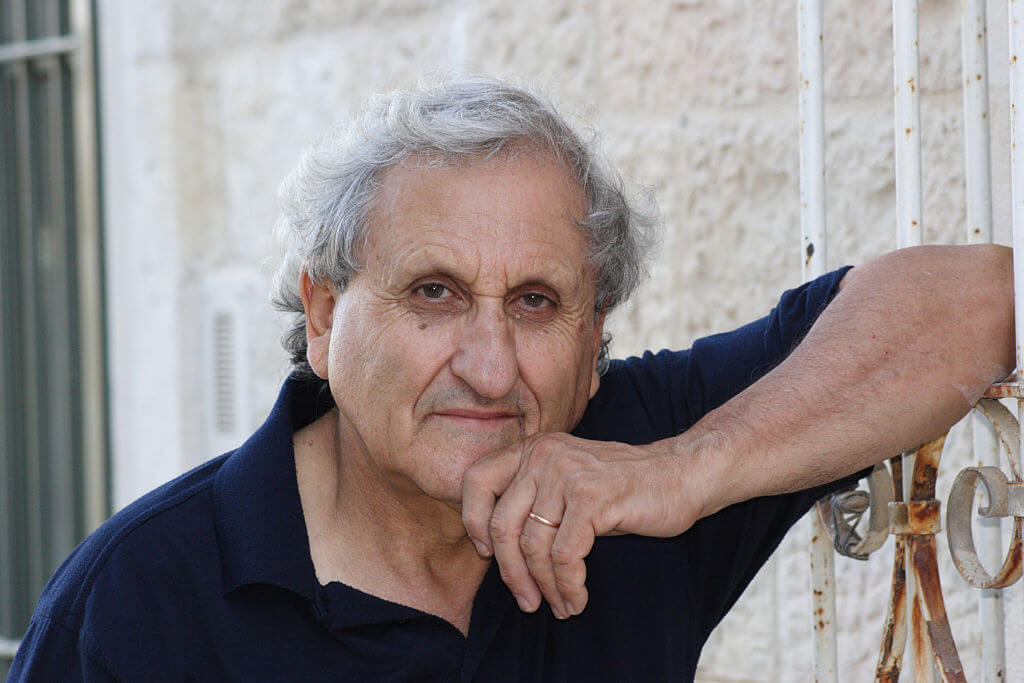A.B. Yehoshua, a literary giant and political activist in Israel, dies at 85
A.B. Yehoshua, among Israel’s most esteemed writers, was also a political activist and frequent commentator on the Israeli-Palestinian conflict.

A.B. Yehoshua left behind a literary legacy. Photo by Getty Images
This article originally appeared on Haaretz, and was reprinted here with permission. Sign up here to get Haaretz’s free Daily Brief newsletter delivered to your inbox.
Renowned Israeli writer and political activist A.B. Yehoshua died at 85, Tel Aviv’s Ichilov Hospital said on Tuesday. He will be laid to rest on Wednesday afternoon in Ein Carmel, in Israel’s north.
Israel’s President Isaac Herzog called him “one of Israel’s greatest writers” and sent condolences to Yehoshua’s family, adding that “his works, which drew from the image of our homeland and the treasures of our people, provided us a precise, sharp, loving and at times painful mirror image of ourselves.”
Abraham B. Yehoshua was born in Jerusalem in 1936. He taught for years at the University of Haifa, a northern Israeli city featured in many of his literary works.
He was awarded the Israel Prize for Literature in 1995 and the French Prix Médicis in 2012.
Yehoshua’s first book was published in Hebrew in 1963. In 1977, he published his first novel, “The Lover,” which was widely translated was adapted to film and stage several times. His other works include “A Late Divorce,” “Mr. Mani” and “The Return From India.” His most recent work “The Third Temple” was published earlier this year.
He was also a political activist and often spoken about the Israeli-Palestinian conflict and other national issues. He called on the Israeli leadership to hold talks with the Palestinian Liberation Organization in 1976.
In a 2008 interview he told Haaretz that “a binational state is a sure way to kill the Israeli nation.” In the same interview he said that “I’m a total Jew, because I live in Israel. Jews who don’t live here are partial Jews.” He added that “I expect American Jews, who were raised in a democracy, to understand that the moment settlements will appear here, it will lead to apartheid.”
Yehoshua was a member of the Labor Party. He later joined Meretz and sat on the public council of anti-occupation group B’Tselem.
B’Tselem said in a statement that the organization “mourns the passing of A.B. Yehoshua, who alongside a brilliant literary career devoted his energy and time to the fight for equality, peace and human rights for all human beings between the Jordan River and the Mediterranean Sea.”
Meretz lawmaker Mossi Raz expressed his “great pain” over the death of “a true activist for justice and peace.”
In a 2018 article he published on Haaretz, Yehoshua wrote that “for 50 years I worked tirelessly for the two-state solution. Yet, just when the term “Palestinian state” is becoming a staple fixture in the international sphere, it seems that this vision is no longer viable in practice and we must try to examine the situation with intellectual honesty and think about other solutions.”
This article originally appeared on Haaretz, and was reprinted here with permission. Sign up here to get Haaretz’s free Daily Brief newsletter delivered to your inbox.
















